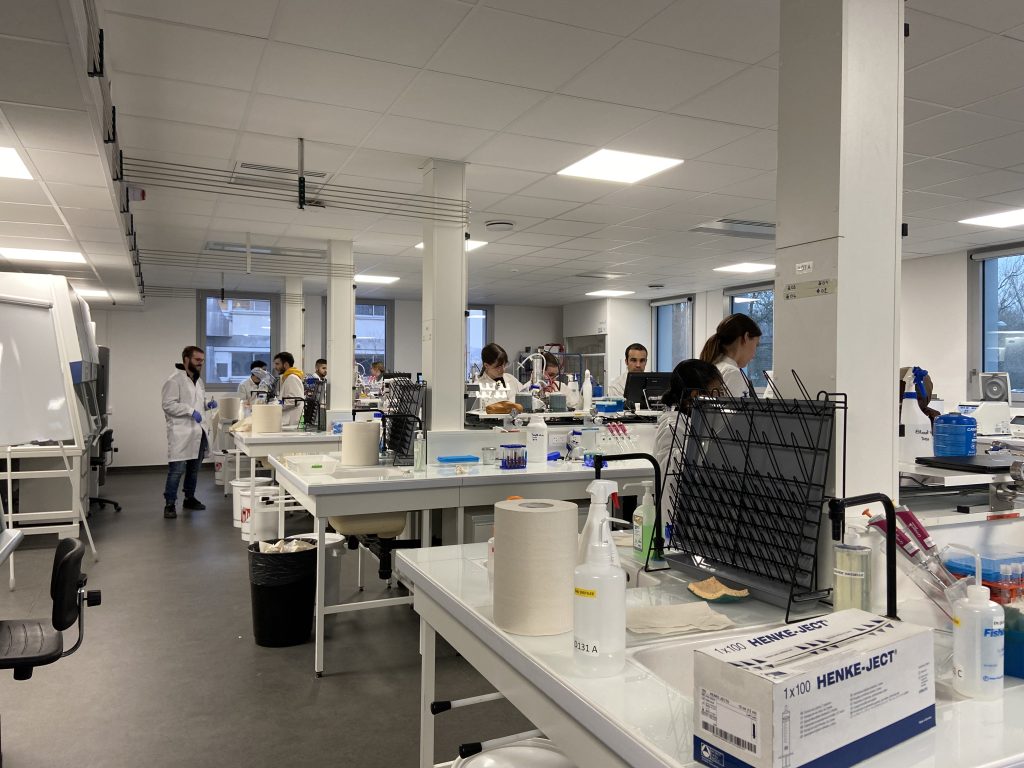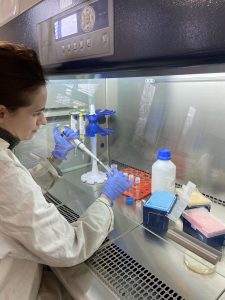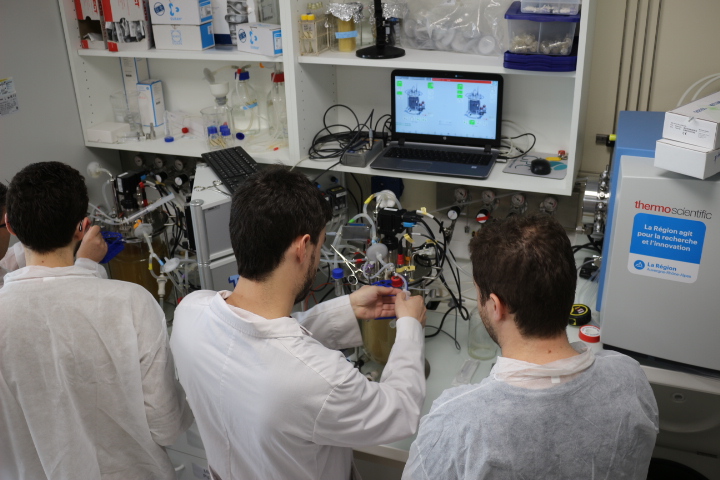3-year Engineering degree programme "European Biotechnology for Sustainability"

Duration: 3-years (full-time)
Degree: Engineering Diploma (CTI accredited)
EBS key words explained:
- Biotechnology: interdisciplinary field using biological systems, organisms or components to create new technologies
- Sustainability: avoiding pollution and depletion of natural resources in order to maintain ecological balance and reduce the velocity of climate change
- European: providing special focus on European strategy, policies and funding relevant to these fields
We offer to train you for a responsible career path in a global context:
Biotechnology has the potential to play a pivotal role in addressing various global challenges including environmental degradation and climate change, which has widely been recognized as an urgent issue to human civilization and life on Earth in general.
Europe’s role in the fight against climate change includes maintaining its leadership through progressive policies, fostering international collaboration, advocating for stringent climate goals, and setting a global example.
In this innovative programme you will:
- Get up to speed in key fundamental knowledge areas such as Chemistry, Biochemistry, Biological sciences (Microbiology, Cell Biology, Molecular Biology), Computational Biology, Ecology and Engineering Science
- Apply interdisciplinary knowledge to real-world scenarios in project based learning with a strong emphasis on laboratory-intensive, hands-on technical skills
- Study in an international learning environment
- Acquire high-level, up-to-date technical skills required to thrive in the rapidly evolving and expanding biotechnology sector
- Gain a comprehensive understanding of the European framework in which the biotechnology sector and sustainable development operate
- Develop advanced intercultural skills and professional competency through academic and internship mobility periods

Reasons you should choose this programme:
- You have an interest in biotechnology and biochemical engineering
- You enjoy developing solutions for complex problems, using innovative tools
- You want to integrate sustainable development in your career path
- You enjoy learning and working in an international context
With the Engineering degree “European Biotechnology for Sustainability”, your future work place may be a consulting engineering company, a bioproduction company in the pharmaceutical, chemical, agricultural or food tech industrial sector, a ministry or maybe you would like to become a PhD student at a university or a research institution.
Key teaching domains:
Biotechnology: Covering the fundamentals in microbiology, molecular and cellular biology and molecular biology, up to biotransformations and bioconversions. The principles of cell factories, protein engineering and enzyme design are included. Analytical techniques and strategy for bioproduction equally play central role in this domain.
Bioprocesses and Chemical Engineering: Focuses on areas such as bioprocess engineering, upsteam processes and downstream processes as well as Bioprocess design and intensification. Design and operation of appropriate unit operations, including instrumentation to monitor and control biotechnological processes are covered, as well as bioproduct separation and purification technologies.
Computational Biology: The aim is to enable the student to understand and use digital tools for the development of projects in biotechnology and bioprocesses and to have the ability to interact with specialists in the field. In addition to teaching in programming, databases and artificial intelligence, students will be trained to use simulation and modelling tools for the development and optimization of bioprocesses.
Sustainability: Covering Life cycle assessment, environmental impact, carbon accounting methodologies (Carbon Footprint), emissions quantification, and strategies for reducing the environmental footprint of bioproduction processes, required for sustainable bioprocess design.
Humanities: This teaching domain represents a fully integrated, innovative teaching approach covering language competency, intercultural competency and the capacity to implement sustainability and social and environmental responsibility criteria in the professional context. This also includes the capacity to understand and take into consideration the European action framework in the development of biotechnology projects in an industrial or fundamental research context.
The curriculum also mandates three internships and/ or research experience, at least one of these in an international setting, ensuring that students gain significant international and professional experience which is highly valued by employers.
More details about the programme content

Final year specializations:
You can choose between three options:
Track 1: Cell factory development
Research and development oriented, this specialization covers Systems Biology, Synthetic Biology, and related computational tools and bioprocess design and engineering including scale-up from flask to laboratory scale reactor. The de novo Enzyme design module focuses on computational methods to study and develop enzymes from scratch (shared with Track 3). The sustainable approach to bioprocess design and development is emphasized.
Track 2: Advanced biotechnology & bioproductions
Focusing on industrial applications in the biopharmaceutical, industrial biotech, chemical or food tech industries, this specialization track covers the larger scale dimensioning of bioprocesses, optimisation and transition from lab to industrial production. Students will explore conventional unit operations and bioprocess intensification (continuous bioprocessing, high cell density cultures, waste limitation, improvement of energy yields, miniaturisation, etc.) employing innovative technology
Track 3: AI & digital sciences for biotechnology
Students will acquire advanced knowledge in computational biology for applications in the biopharmaceutical, industrial biotech, chemical industries or food tech industries. This specialization confers solid skills in the application of in-silico tools, covering Artificial Intelligence, Big Data, data management, Machine Learning, Bioinformatics, Python programming, Process Simulation, Protein design.
Career perspectives
With the Engineering degree « European Biotechnology for Sustainability », your future work place may be a consulting engineering company, the R&D, industrialization or manufacturing department of a bioproduction company in the pharmaceutical, chemical, agricultural or food tech industrial sector at expert or management level, a ministry or, alternatively, you may wish to become a PhD student at a university or a research institution.

